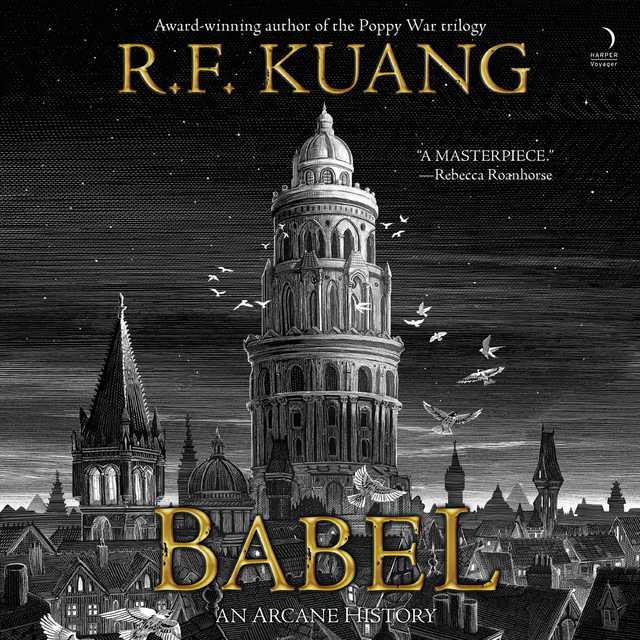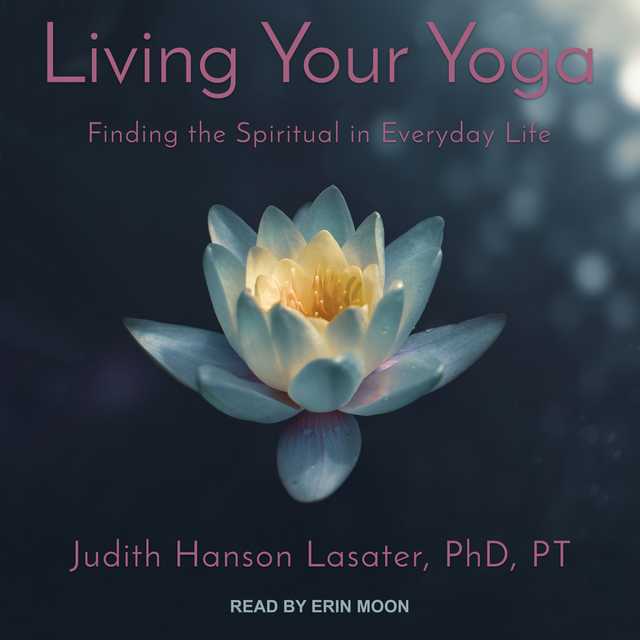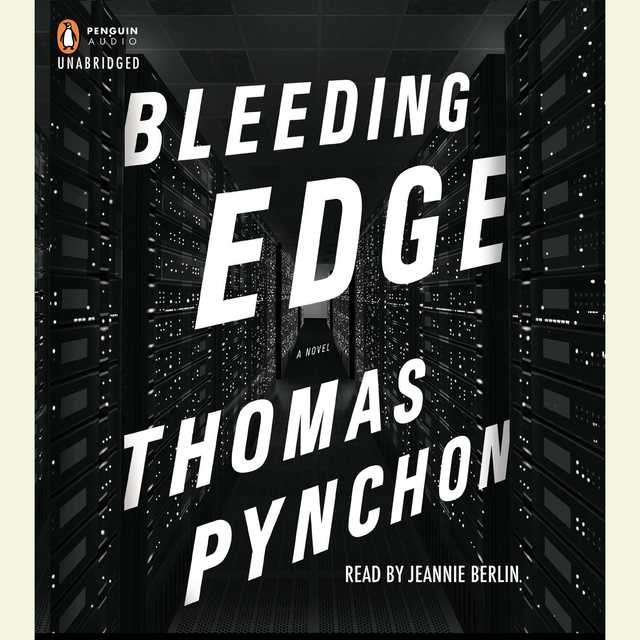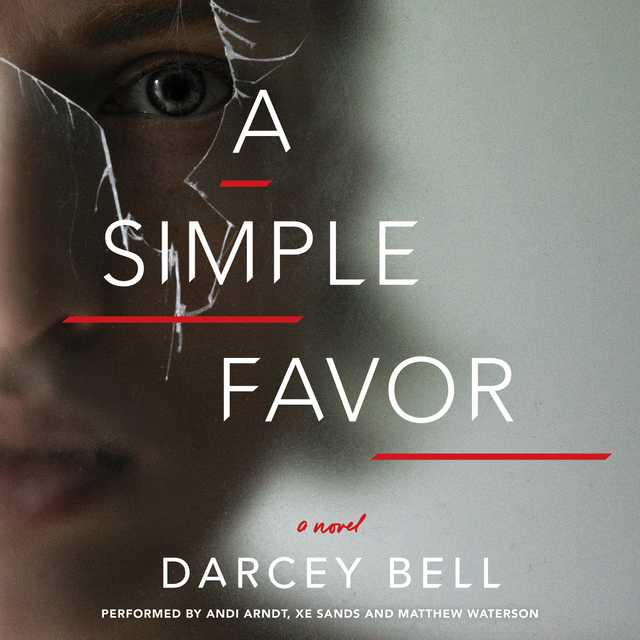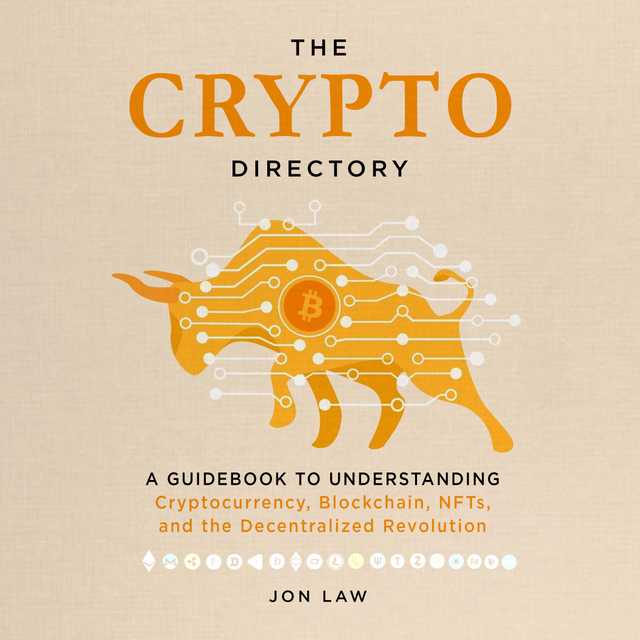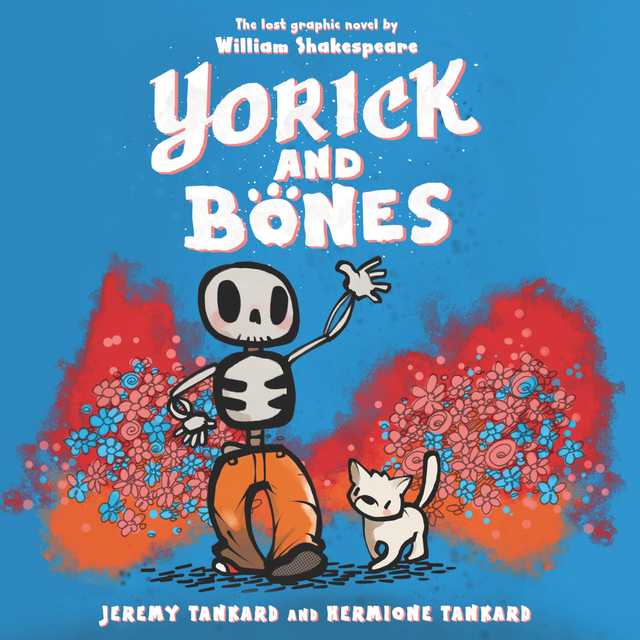Babel Audiobook Summary
From award-winning author R. F. Kuang comes Babel, a thematic response to The Secret History and a tonal retort to Jonathan Strange & Mr. Norrell that grapples with student revolutions, colonial resistance, and the use of language and translation as the dominating tool of the British empire.
Traduttore, traditore: An act of translation is always an act of betrayal.
1828. Robin Swift, orphaned by cholera in Canton, is brought to London by the mysterious Professor Lovell. There, he trains for years in Latin, Ancient Greek, and Chinese, all in preparation for the day he’ll enroll in Oxford University’s prestigious Royal Institute of Translation–also known as Babel.
Babel is the world’s center for translation and, more importantly, magic. Silver working–the art of manifesting the meaning lost in translation using enchanted silver bars–has made the British unparalleled in power, as its knowledge serves the Empire’s quest for colonization.
For Robin, Oxford is a utopia dedicated to the pursuit of knowledge. But knowledge obeys power, and as a Chinese boy raised in Britain, Robin realizes serving Babel means betraying his motherland. As his studies progress, Robin finds himself caught between Babel and the shadowy Hermes Society, an organization dedicated to stopping imperial expansion. When Britain pursues an unjust war with China over silver and opium, Robin must decide…
Can powerful institutions be changed from within, or does revolution always require violence?
Supplemental enhancement PDF accompanies the audiobook.
Other Top Audiobooks
Babel Audiobook Narrator
Chris Lew Kum Hoi is the narrator of Babel audiobook that was written by R. F. Kuang
Rebecca F. Kuang is a Marshall Scholar, Chinese-English translator, and the Astounding Award-winning and the Hugo, Nebula, Locus, and World Fantasy Award nominated author of the Poppy War trilogy and the forthcoming Babel. Her work has won the Crawford Award and the Compton Crook Award for Best First Novel. She has an MPhil in Chinese Studies from Cambridge and an MSc in Contemporary Chinese Studies from Oxford; she is now pursuing a PhD in East Asian Languages and Literatures at Yale.
About the Author(s) of Babel
R. F. Kuang is the author of Babel
More From the Same
- Author : R. F. Kuang
- The Complete Poppy War Trilogy
- The Poppy War
- The Burning God
- The Dragon Republic
- Yellowface
- Publisher : HarperAudio
- Abraham
- American Gods [TV Tie-In]
- Dead Ringer
- House of Sand and Fog
- Prey
Babel Full Details
| Narrator | Chris Lew Kum Hoi |
| Length | 21 hours 46 minutes |
| Author | R. F. Kuang |
| Category | |
| Publisher | HarperAudio |
| Release date | August 23, 2022 |
| ISBN | 9780063021457 |
Additional info
The publisher of the Babel is HarperAudio. The imprint is HarperAudio. It is supplied by HarperAudio. The ISBN-13 is 9780063021457.
Global Availability
This book is only available in the United States.
Goodreads Reviews
Petrik
October 22, 2022
ARC was provided by the publisher—Harper Voyager—in exchange for an honest review.Babel was absolutely impressive, ambitious, and intelligently crafted. As unbelievable as it sounds, R.F. Kuang has triumphed over The Poppy War Trilogy—which I loved so much—with this one book. “Language was always the companion of empire, and as such, together they begin, grow, and flourish. And later, together, they fall.” Babel, or the Necessity of Violence: an Arcane History of Oxford Translators’ Revolution is Kuang’s newest novel. And unlike The Poppy War Trilogy, which I consider a grimdark fantasy series, Babel is a standalone dark academia novel. Also, because this is the longest book title I’ve ever witnessed, to make this review more digestible, I’m going to call the book simply Babel. Babel was—and still is, until August—my most anticipated release of the year. The cover art by Nico Delort looks spectacular, and I think many of you know that I am a fan of The Poppy War Trilogy. I am proud to say that I was one of the first reviewers for Kuang’s debut, The Poppy War, and I mentioned in my review of The Poppy War that Kuang will be one of the queens of modern fantasy. The Dragon Republic and The Burning God proved that notion. And with Babel, Kuang proved, once again, that she is indeed one of the best fantasy authors to appear within the past five years. “‘But that’s the beauty of learning a new language. It should feel like an enormous undertaking. It ought to intimidate you. It makes you appreciate the complexity of the ones you know already.’” The story in Babel is told almost exclusively from the perspective of Robin Swift. In 1828, Robin Swift lost his last surviving family due to cholera, and he was then brought to London by the mysterious Professor Lovell. Professor Lovell brought Robin to train him in Latin, Ancient Greek, and Chinese—even though Chinese is his first language—in preparation for the day he'll enroll in Oxford University's prestigious Royal Institute of Translation, also known as Babel. Babel is the world's center of translation and, more importantly, of silver-working: the art of manifesting the meaning lost in translation through enchanted silver bars to magical effect. Silver-working has made the British Empire unparalleled in power, and Babel's research in foreign languages serves the Empire's quest to colonize everything it encounters. Oxford, the city of dreaming spires, feels like a fairytale for Robin. It is a utopia dedicated to the pursuit of knowledge, and knowledge means power. But for Robin, a Chinese boy raised in Britain, this means inevitably betraying his motherland. Robin has to decide whether he should continue to pursue knowledge and stay in Babel, or will he choose to side with the shadowy Hermes Society, an organization dedicated to sabotaging the silver-working, which in essence, defies Babel. "Languages are easier to forget than you imagine… Once you stop living in the world of Chinese, you stop thinking in Chinese… Words and phrases you think are carved into your bones can disappear in no time.’ The passage above speaks the truth. For those of you who don't know, Indonesia is my first language, Chinese (Mandarin) is my second, and English is my third language. Due to my lack of usage of the Chinese language, it honestly felt like English has transformed into my second language. As you can probably guess from the title and premise of Babel, colonialism, racism, languages, translations, identities, necessities of violence, and finding a place to belong are some of the heaviest themes of Babel. Regardless of whether you love The Poppy War Trilogy or Babel more, I am filled with confidence in saying that Kuang has outdone herself with this novel. "Translation, from time immemorial, has been the facilitator of peace. Translation makes possible communication, which in turn makes possible the kind of diplomacy, trade, and cooperation between foreign peoples that brings wealth and prosperity to all." There is a LOT to unpack in this standalone novel. Each of the themes I mentioned earlier was discussed with ruthless exploration. And I believe that any reader reading Babel could actually use the novel to write their own dissertation on one—or more—of the chosen themes. It felt crystal clear that Kuang has done a myriad of research, and she put them all on the pages of Babel. As a reader who speaks multiple languages, I've been reading, writing, thinking, or speaking in two or three languages every day. It won't come as a surprise that I have an interest in linguistics, etymology, and translation. And Babel has them all. Done in a meticulous and addictive fashion, taking place in an alternative historical fantasy setting, Babel never cease to raise thought-provoking questions and discuss important issues with its readers. "Betrayal. Translation means doing violence upon the original, means warping and distorting it for foreign, unintended eyes. So then where does that leave us? How can we conclude, except by acknowledging that an act of translation is then necessarily always an act of betrayal?" What if the city of dreaming spires is, in reality, a tower leading them to an inevitable nightmare through the illusion of grandeur and greatness? Babel is not as grim as The Poppy War Trilogy. It also has a comparatively more likable main character, which I'll get into soon. And these elements made the events and development in Babel more relatable. Look, I could talk about the plot all day long if I want to. But it is quite frankly impossible to discuss in more detail what made the themes executed in Babel so cleverly done without going into spoiler territory. The book isn't out yet for more than two months, and I prefer leaving the best of the plot in Babel to future readers to find out for themselves. Instead, I will now proceed to elaborate upon the characters of Babel and their characterizations. "In the years to come, Robin would return so many times to this night. He was forever astonished by its mysterious alchemy, by how easily two badly socialized, restrictively raised strangers had transformed into kindred spirits in the span of minutes." One of the most magnificent things about Babel is its characterizations, especially for Robin Swift. In one book, less than 700 pages long, Kuang managed to meticulously introduce and develop Robin Swift. His character development and story arc felt immense. Seriously, by the end of the novel, try to look back to the beginning of the novel, and you will see how far Robin Swift has changed. Plus, his character development never felt forced. His grief, rage, dilemma, struggles, kindness, and relatively brief moments of happiness felt so genuine. And I, several times throughout the novel, truly empathized with him. The numbers of challenges, jealousy, avarice, manipulation, and domination he has to defeat were just staggering. "Only it builds up, doesn’t it? It doesn’t just disappear. And one day you start prodding at what you’ve suppressed. And it’s a mass of black rot, and it’s endless, horrifying, and you can’t look away." Fortunately, Robin was not alone in facing the cruelties pushed upon him. Accompanying him were three supporting characters: Ramy, Letty, and Victoire. This group of friends, these four characters, are individuals with distinct and different personalities, and yet circumstances allowed them to eagerly trust one another without any interrogations. Will they live happily ever after? Well, that's for you to find out. But do know this is a novel by R.F. Kuang, and it is not a spoiler to say Kuang is going to put her characters through physically and mentally crushing pain. As the characters wait for dawn to visit them after a night of explosive discord and conflicts, I waited with bated breath with them. I was so invested in the characters, especially Robin and Victoire, and I consider it a testament to how well-written this book was that, among many other factors, ALL characters in this standalone novel felt so distinctive and compelling. “Babel, his friends, and Oxford– they had unlocked a part of him, a place of sunshine and belonging, that he never thought he’d feel again. The world felt less dark now.” There is also a feeling of satisfaction in reading Kuang's novels from her debut in publication order. Kuang is an author that keeps getting better and better with each new book, and Babel is the author at the top of her game. The narrative has the potential to strike a various range of emotions, and it is delivered mercilessly. One out of many examples, and I'm going to be vague about this, there was a virtuous character who has their kindness tested too far, and we readers get to witness how deadly the malice that kindness can conjure from this. I felt distraught and conflicted by this, in a good way. But at the same time, I also felt sad, and to a level, rewarded by the turn of events. The prose continuously flows well, and the author successfully nailed the character's development. This doesn't mean I fully agree with the character's actions and motivation, but I understood them. The devastations wrought to counter colonialism portrayed were bloody and vicious, and I found the narrative hard to put down. Babel asks its readers whether there is indeed morality and necessity in violence, or is it all an unnecessary and endless deadly cycle with no way out. “Power did not lie in the tip of a pen. Power did not work against its own interests. Power could only be brought to heel by acts of defiance it could not ignore. With brute, unflinching force. With violence.” Lastly, I need to mention that I have never been to Oxford or United Kingdom. In fact, I have never been outside of Asia. It remains one of my goals to visit the UK and other countries outside Asia. This is to say that Babel did not only immerse me in its memorable story, but it made me want to visit London even more. It's such a vividly portrayed novel with incredible world-building and layered histories. Yes, Babel takes place in our world, but adding the magic of silver-making that required memories and the proficiency in languages and translations to the narrative provided a totally brilliant result in enriching the depth and complexities of the world. I seem to now have a newfound extra appreciation for translators, too. Take a look at this passage: "I think translation can be much harder than original composition in many ways. The poet is free to say whatever he likes, you see– he can choose from any number of linguistic tricks in the language he’s composing in. Word choice, word order, sound– they all matter, and without any one of them the whole thing falls apart. That’s why Shelley writes that translating poetry is about as wise as casting a violet into a crucible.† So the translator needs to be translator, literary critic, and poet all at once– he must read the original well enough to understand all the machinery at play, to convey its meaning with as much accuracy as possible, then rearrange the translated meaning into an aesthetically pleasing structure in the target language that, by his judgment, matches the original. The poet runs untrammelled across the meadow. The translator dances in shackles." Isn't that so accurate and profound? I actually highlighted more passages in Babel compared to the entire The Poppy War Trilogy. Babel is one of the finest standalone novels I've read. It is a victory for literature, and its quality is what every other dark academia novel should strive to be. Paying homage to the importance of languages, translations, identity, and ethnicities, Babel is one of the most important works of the year. August 2022 will be a big month for the fantasy genre. Not only Babel is the third novel of the year so far that I rated with a full 5 out of 5 stars rating, but it will also be released in August 2022, just a week after The First Binding by R.R. Virdi, which was the second novel I rated 5 out 5 stars rating this year. With The Poppy War Trilogy and Babel as her bibliography so far, I feel assured already in declaring R.F. Kuang as one of my favorite authors of all time. A marvelous one-off fantasy standalone is frequently difficult to find. Pre-order Babel. You won't regret it. "That’s just what translation is, I think. That’s all speaking is. Listening to the other and trying to see past your own biases to glimpse what they’re trying to say. Showing yourself to the world, and hoping someone else understands." Where do Babel stand in my best books of the year list? To that, I’ll say: "Mande mwen yon ti kou ankò ma di ou," You can order this book from: Blackwells (Free International shipping)The quotes in this review were taken from an ARC and are subject to change upon publication.You can find this and the rest of my reviews at Novel Notions | I also have a Booktube channelSpecial thanks to my Patrons on Patreon for giving me extra support towards my passion for reading and reviewing!My Patrons: Alfred, Andrew, Andrew W, Amanda, Annabeth, Ben, Diana, Dylan, Edward, Elias, Ellen, Ellis, Gary, Hamad, Helen, Jimmy Nutts, Joie, Luis, Lufi, Melinda, Meryl, Mike, Miracle, Neeraja, Nicholas, Reno, Samuel, Sarah, Sarah, Scott, Shawna, Xero, Wendy, Wick, Zoe.
Sofia
October 09, 2022
By the end of Babel, I was shaking. Maybe out of grief, maybe out of awe; I felt as if I had watched something monumental flourish and collapse. And, for a minute, the world seemed so still, like the last few pages were a clip from a silent film. I’m writing this review immediately after finishing the book. I think, at some point in the near future, the enormity of what I have just read will come slamming into me. But for now, I will type away and try, in vain, to express the shockwave that I know is about to hit the literary world.Babel has the weight of a modern literary classic, although it is a unique blend of historical fiction, fantasy, and nonfiction. Kuang’s writing can be very technical, and often reads like a textbook. Despite the dense, lecture-like paragraphs about etymology and the history of language, Babel is incredibly immersive. It’s so easy to get swept up in this story. Over the 24 hours that I was reading this, I would tell myself that I was just sitting down to read a few pages, only to accidentally read one hundred. I enjoy reading nonfiction and I have a passion for languages, so when I closed the cover of the book feeling like I had just completed a university course, I was filled with this sort of humming glee. I can see myself reading Babel again and again, poring over every sentence with the same fascination that I experienced this first time through.Rebecca Roanhorse calls Babel Kuang’s love-hate letter to academia, which could not be more accurate. Nowhere else have I read academia described with so much biting, loving, unflinching detail. Babel honors the magic of translation and linguistics. While many say that words are just sequences of sounds given meaning, language is undeniably a keystone of history and culture. Translation is a highly underappreciated art. Every time words are converted between languages, they lose some of their association, some of their meaning and gravity. What is most important in a translation? The author’s style and voice? The emotional message? The exact words themselves?Robin, the main character, feels so real. For most of the book, he grapples with impossible decisions. He was taken to Babel without choice, but he feels at home in the tower, which feeds his hunger for knowledge. He knows that the research he works on supports British imperialism, but he relishes the power he wields as a translator and silver-worker. As he witnesses Britain pump opium into China, his homeland, he struggles to choose between the utopian life of comfort and discovery he has grown to treasure and everything he has wilfully ignored for most of his life: the fact that he will never truly be accepted in Oxford for who he really is, that to the empire, people like him are either curiosities to be examined or subhumans to be exploited. Staying at Babel feels like a betrayal, but the enormity of the other option frightens him: join the secretive Hermes Society to take a stand against Britain’s abuse.This is where many of the most weighty questions are raised. As the title suggests, Babel is in part a breakdown of the necessity of violence. It’s easy to say that nothing is solved by brute force that could not have been solved by diplomacy, but will an oppressor ever be able to sacrifice their pride and greed? At what point does a line need to be crossed, a transition from peaceful activism to the threat or action of violent upheaval? Robin, Ramy, Victoire, and Letty are all meticulously drawn characters. While their bond is fiery and passionate, they are afraid to test the limits of their inherent differences. Letty, raised in an upper-class white family, has trouble understanding how Robin, Ramy, and Victoire will never truly be free at Babel. How they were taken from their countries and shackled to Babel, forced to help construct the same empire that is destroying their homes and enslaving their people.Babel is passionate, scathing, incendiary, fervent. It has all the inevitability and gravity of a tidal wave, a massive force crashing into me, sweeping me away. Here, I find that language has failed me once again, because I cannot write a sentence or a paragraph or a whole review that will quite capture how I felt when I finished Babel. I will leave it for you to discover, because if you pick up just one book this year, make it this one.5 stars
R.F.
December 26, 2021
This is the most ambitious thing I've ever written. In a lot of ways, the Poppy War trilogy was my training wheels; I finished off the standard linear epic fantasy project, and now I get to do all the formal, stylistic, thematic experimentation that I want. It's a love letter and breakup letter to Oxford. It gnaws at questions that have bothered me since I started graduate school–chiefly the brokenness of academia, and the sacrifices that true change might require. It's all the gnarly, bizarre, fascinating facets to linguistics, translation, and colonialism I've been studying over the past few years. I can't wait to share it all with you in 2022!!!
jessica
October 09, 2022
if books were people, this story would be my perfect match. because this is the equivalent to tall, dark, and handsome. its also intellectual, mysterious, and passionate. what can i say - i have a type.and its dark academia.(the fantasy element in this is also a pleasant bonus).↠ 5 stars
Hannah
October 20, 2022
a history lesson and a therapy session all in one r.f. kuang is brilliant and i will never be the same
Melanie
January 05, 2023
so many people are going to have so many individual heart shattering reactions to their identity because of this book. it made me feel pride, it made me feel shame, it made me hopeful, it made me grieve, it truly kind of made me feel everything. but right now i am just feeling in awe of rf kuang and everything they are doing in literature, showing all the different words people use for violence. best footnotes. best dark academia. best book of 2022. trigger warnings + content warnings: loss of a loved one, murder, death, grief, disease/plague mentions, colonization, war, invasion, battle, talk of slavery, abuse, physical abuse from guardian, racism, xenophobia, colorism, use of slurs, blood, talk of suicide, talk of child labor, talk of inhumane work conditions, police brutality, torture, gun violence, brief sexual assault (unwanted touching with intent on more) mention of feet binding, misogyny, talk of drugs, stress + anxiety depictions, vomiting, talk of extreme stress put on students (beautiful art by cosmikbread) Blog | Instagram | Youtube | Ko-fi | Spotify | Twitchbuddy read with may and maëlys
Elle
February 20, 2023
Now a Goodreads Choice finalist in Fantasy!! I have put off writing this review for months, for no reason other than I was afraid of failing to fully and accurately explain R.F. Kuang’s newest work to people interested in reading it. So I hope you’ll forgive me for letting myself off the hook in
Most Popular Audiobooks
Frequently asked questions
Listening to audiobooks not only easy, it is also very convenient. You can listen to audiobooks on almost every device. From your laptop to your smart phone or even a smart speaker like Apple HomePod or even Alexa. Here’s how you can get started listening to audiobooks.
- 1. Download your favorite audiobook app such as Speechify.
- 2. Sign up for an account.
- 3. Browse the library for the best audiobooks and select the first one for free
- 4. Download the audiobook file to your device
- 5. Open the Speechify audiobook app and select the audiobook you want to listen to.
- 6. Adjust the playback speed and other settings to your preference.
- 7. Press play and enjoy!
While you can listen to the bestsellers on almost any device, and preferences may vary, generally smart phones are offer the most convenience factor. You could be working out, grocery shopping, or even watching your dog in the dog park on a Saturday morning.
However, most audiobook apps work across multiple devices so you can pick up that riveting new Stephen King book you started at the dog park, back on your laptop when you get back home.
Speechify is one of the best apps for audiobooks. The pricing structure is the most competitive in the market and the app is easy to use. It features the best sellers and award winning authors. Listen to your favorite books or discover new ones and listen to real voice actors read to you. Getting started is easy, the first book is free.
Research showcasing the brain health benefits of reading on a regular basis is wide-ranging and undeniable. However, research comparing the benefits of reading vs listening is much more sparse. According to professor of psychology and author Dr. Kristen Willeumier, though, there is good reason to believe that the reading experience provided by audiobooks offers many of the same brain benefits as reading a physical book.
Audiobooks are recordings of books that are read aloud by a professional voice actor. The recordings are typically available for purchase and download in digital formats such as MP3, WMA, or AAC. They can also be streamed from online services like Speechify, Audible, AppleBooks, or Spotify.
You simply download the app onto your smart phone, create your account, and in Speechify, you can choose your first book, from our vast library of best-sellers and classics, to read for free.
Audiobooks, like real books can add up over time. Here’s where you can listen to audiobooks for free. Speechify let’s you read your first best seller for free. Apart from that, we have a vast selection of free audiobooks that you can enjoy. Get the same rich experience no matter if the book was free or not.
It depends. Yes, there are free audiobooks and paid audiobooks. Speechify offers a blend of both!
It varies. The easiest way depends on a few things. The app and service you use, which device, and platform. Speechify is the easiest way to listen to audiobooks. Downloading the app is quick. It is not a large app and does not eat up space on your iPhone or Android device.
Listening to audiobooks on your smart phone, with Speechify, is the easiest way to listen to audiobooks.

